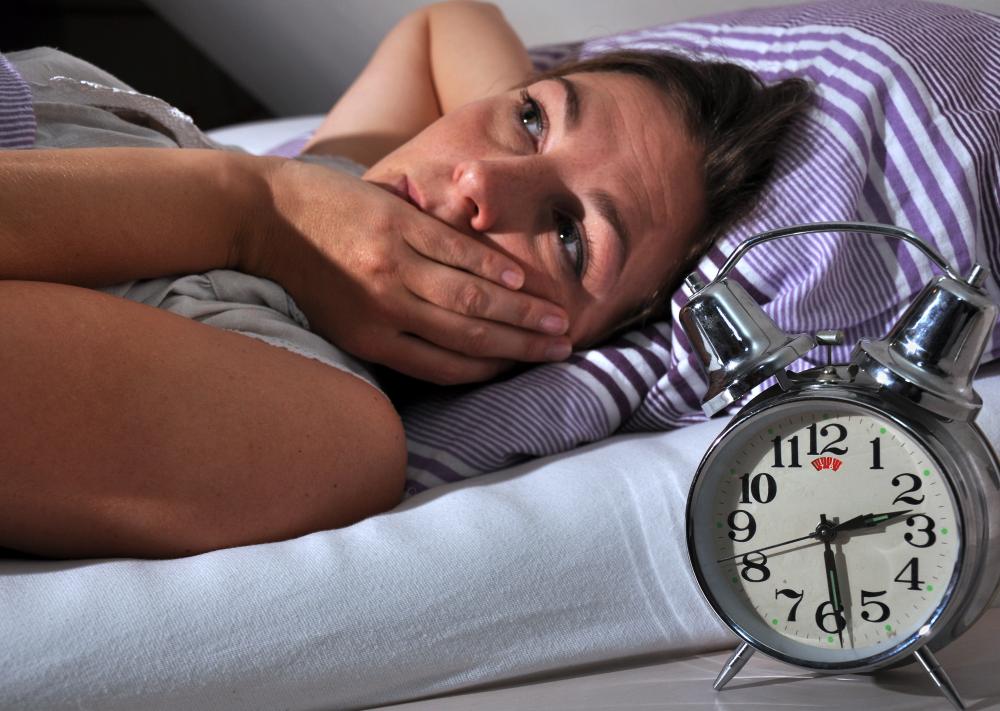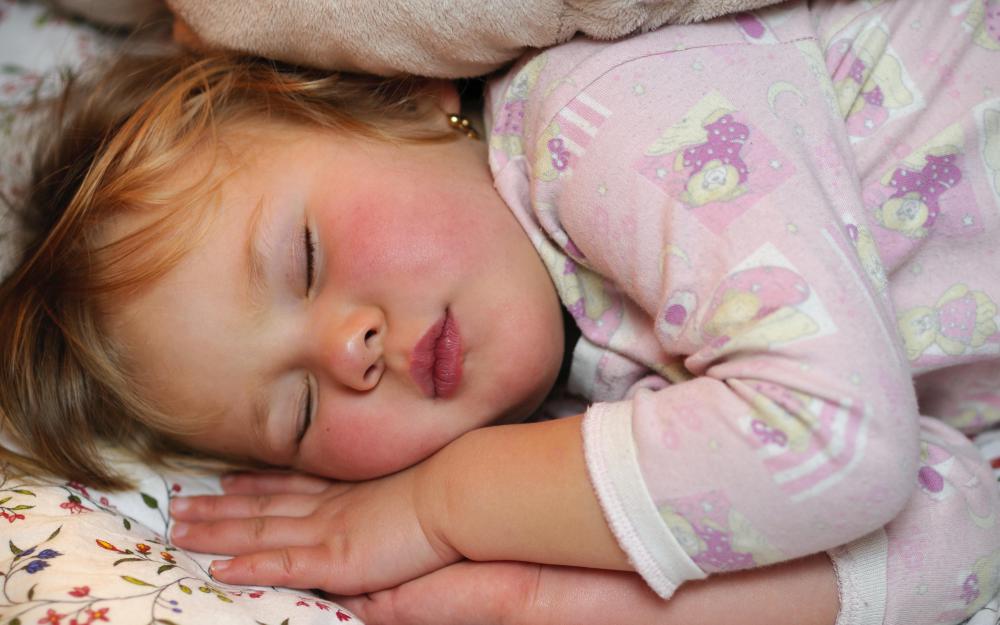At WiseGEEK, we're committed to delivering accurate, trustworthy information. Our expert-authored content is rigorously fact-checked and sourced from credible authorities. Discover how we uphold the highest standards in providing you with reliable knowledge.
What is Clinophobia?
Clinophobia is the irrational fear of going to bed or of falling asleep. As with many other phobias, clinophobes recognize that their subject of their fear is not threatening, but they are unable to control their physical or psychological reaction to the stimulus that frightens them. This phobia might also be referred to as somniphobia, but to a psychologist, the terms are not completely interchangeable.
Phobias develop as a result of an association between trauma and the subject of the phobia. For many people, a sleep phobia has an underlying cause that relates to their sleeping habits or to an event that happens while they are sleeping. For example, a child might develop clinophobia if he or she wets the bed or has frequent nightmares. Similarly, an adult might develop this phobia if he or she suffers from sleep apnea. Sometimes the condition has a psychological cause; for example, an individual might develop clinophobia if he or she knew someone who died in their sleep.

Clinophobia symptoms are related to the effects of going to bed and attempting to sleep or sometimes even to the thought of sleeping or attempting to sleep. The pattern of symptoms experienced differs from person to person, often depending on the severity of the phobia. For some people, the phobia causes them to feel uncomfortable and anxious when attempting to sleep. In more severe cases, attempting to sleep might provoke severe anxiety or panic attacks.

Symptoms of sleep phobia can include dizziness, dry mouth, shaking or trembling, muscular tension, hyperventilation, rapid heartbeat and heart palpitations. Some people might feel a heightened sense of reality, in which their senses are heightened to a distressing level. Some might feel as though they are out of control or trapped, or they might feel that something disastrous is about to happen.

People with clinophobia must cope not only with the phobia itself but also with its consequences. Insomnia is a very common result of this phobia. As a result of reduced sleep, and what often amounts to sleep of poor quality, many clinophobes suffer from constant tiredness and fatigue, which might cause them to perform poorly at work or school and could even become dangerous.

The fear of going to bed or to sleep is often self-diagnosed, because most adults will realize that their fear, or their children’s fear, is irrational. A clinophobe who visits his or her doctor usually receives a recommendation to visit a psychologist or another mental health professional for evaluation, diagnosis and treatment. Possible treatments and support include traditional talk therapy, hypnotherapy, self-help techniques, support groups and anti-anxiety medication.
AS FEATURED ON:
AS FEATURED ON:
















Discuss this Article
Post your comments